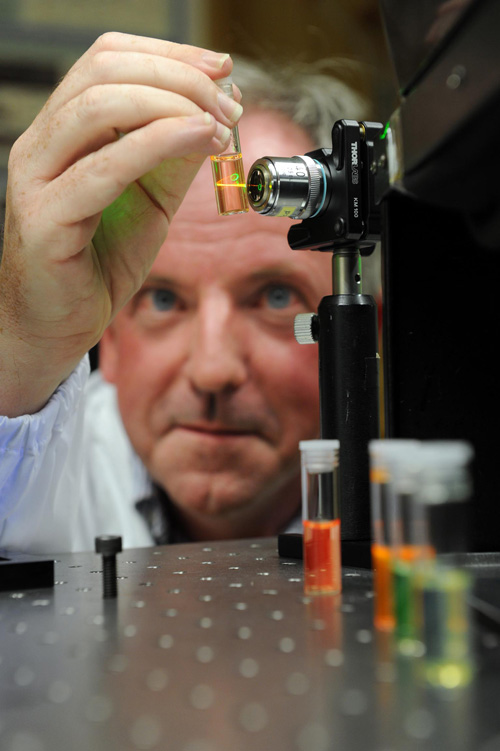Trinity Launches Nanoscience Degree Course
Posted on: 14 September 2010
Imagine being able to build a laptop computer one atom at a time that will meet just your needs. Or powering cities with wind or solar energy thanks to carbon nanotube electrical conductors. Or designing molecules suitable for your particular body. These are all possible through nanoscience which is the study of nanoscale objects less than 100 nanometres – a nanometre is one million times smaller than a millimetre. New technologies emerging from nanoscience are set to yield the next generation of communications, drug delivery systems, medical imaging techniques, among many other areas.
Students will now have the opportunity to study the exciting world of nanoscience as an undergraduate degree at Trinity College Dublin. The course titled ‘Nanoscience – Physics and Chemistry of Advanced Materials’, jointly run by the Schools of Chemistry and Physics will provide students with a deep understanding of the science of advanced materials such as superconductors, polymers and lasers found in new technologies that underpin the nano revolution. The degree course was launched this week (Monday 13th September) by Trinity and the first intake of students will be in 2011.

Professor John Donegan, head of the School of Physics, performs a demonstration at the launch of the College’s new degree in nanoscience.
“This degree course offers the opportunity to future students to get a well rounded and excellent grounding in some of the most relevant and advanced science in the world today. It is an area that will revolutionise our world and sustain the knowledge economy in Ireland,” explained the Head of School of Physics, Professor John Donegan.
Nanoscience belongs to both physics and chemistry, therefore students will gain a solid grounding in these subjects as well as mathematics in the first two years, which will include laboratory work, lectures and problem-solving tutorials.
Students will then specialise in nanoscience in the third and fourth years, spending six hours per week in a nanoscience laboratory where they will be introduced to a wide range of techniques for the formulation and characterisation of nanomaterials. Trinity’s flagship nanoscience institute, CRANN, is recognised internationally as a leading institute for nanoscience research where students will have access to its state of the art facilities.
In a challenging and exciting final year for students, they will carry out a major research project, working in an academic or industrial research laboratory often abroad, and arranged by Trinity, where they will become familiar with the applications of advanced materials and nanodevices in real life situations.
Nanotechnology is estimated to have a global market value of $3 trillion by 2015 across a diverse range of sectors. Nanoscience contributes to product innovation in virtually every field of manufactured goods and is vital to Ireland’s economic future. Three of the largest industries in Ireland will be directly impacted by nanoscience research ? medical devices, pharmaceutical drugs and information communication technology (ICT). It is estimated that 10%, about €15 billion, of Ireland’s annual exports are now associated with nanotechnology and that there are in excess of 150,000 employees working in companies in which nanotechnology plays an important enabling role. Industries such as Intel and Hewlett Packard are key developers and users of nanotechnology in Ireland.
“Graduates of this new nanoscience degree will be strongly sought-after in the knowledge economy where their interdisciplinary training in physics and chemistry will give them a clear edge in solving real-life problems in high-tech industry,” concluded Head of the School of Chemistry, Professor David Grayson.
The degree will take its first intake of students in 2011. For more information on the degree click on the web link: http://www.tcd.ie/Chemistry/nanoscience/
Trinity in the News:
- InsideIreland.ie
- Nanotechnology Now
